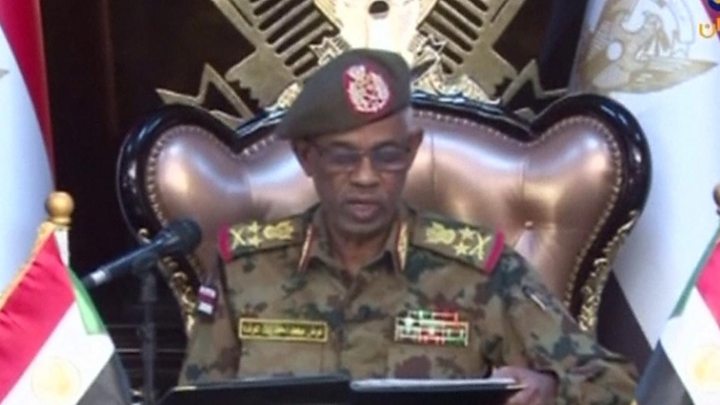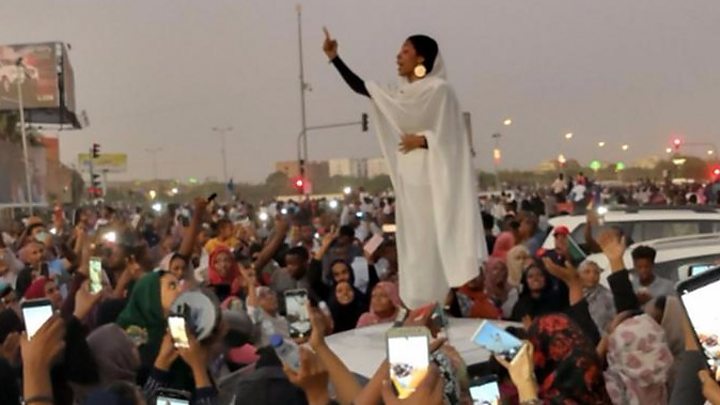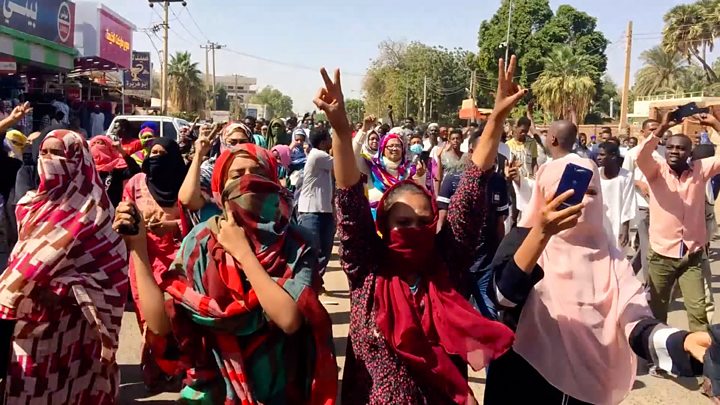
After nearly 30 years in power, Sudan’s president Omar al-Bashir has been ousted and arrested, the defence minister says.
Speaking on state TV, Awad Ibn Ouf said the army had decided to oversee a two-year transitional period followed by elections.
He also said a three-month state of emergency was being put in place.
Protests against Mr Bashir, who has governed Sudan since 1989, have been under way for several months.
Mr Ibn Ouf said the “regime” was being removed and Mr Bashir would be kept in a safe place.
He said Sudan’s constitution was being suspended, border crossings were being closed until further notice and airspace was being closed for 24 hours.
Mr Bashir is the subject of an international arrest warrant issued by the International Criminal Court (ICC), which accuses him of organising war crimes and crimes against humanity in Sudan’s western Darfur region.
However it is unclear what will happen to him following his arrest.
What happened?
In the early hours of Thursday, military vehicles were seen entering the large compound in Khartoum that houses the defence ministry, the army headquarters and Mr Bashir’s personal residence, AFP news agency reported.
State TV and radio later interrupted their programming with a message that the army would be making a statement.
Meanwhile, tens of thousands of demonstrators marched through central Khartoum, some chanting “It has fallen, we won”, Reuters reported.
What’s behind the protests?
They were originally sparked by a rise in the cost of living, but demonstrators then began calling for the president to resign and his government to go.

Omar el-Digeir, a senior protest member, told AFP news agency last week that the group were seeking a path “that represents the wish of the revolution”.
Police had ordered officers not to intervene against the protests but the government was criticised by rights groups for a heavy-handed response to the unrest.
Government officials say 38 people have died since the unrest began in December, but the pressure group Human Rights Watch said the number was higher.
In February, it looked as though the president might step down at that point, but instead Mr Bashir declared a state of national emergency.




